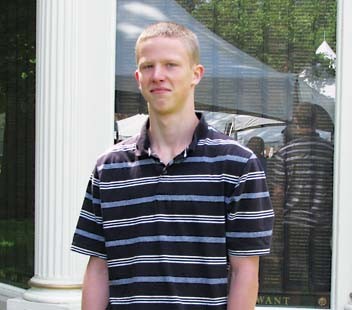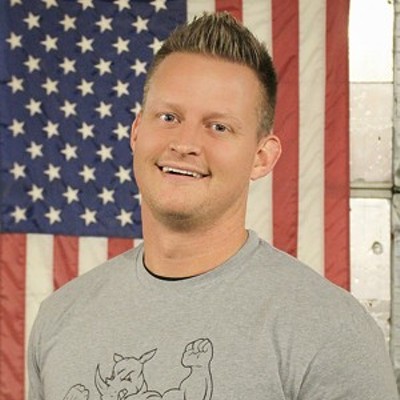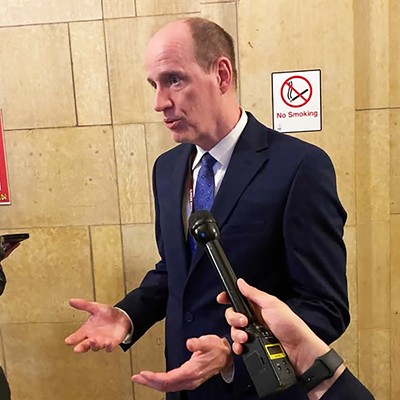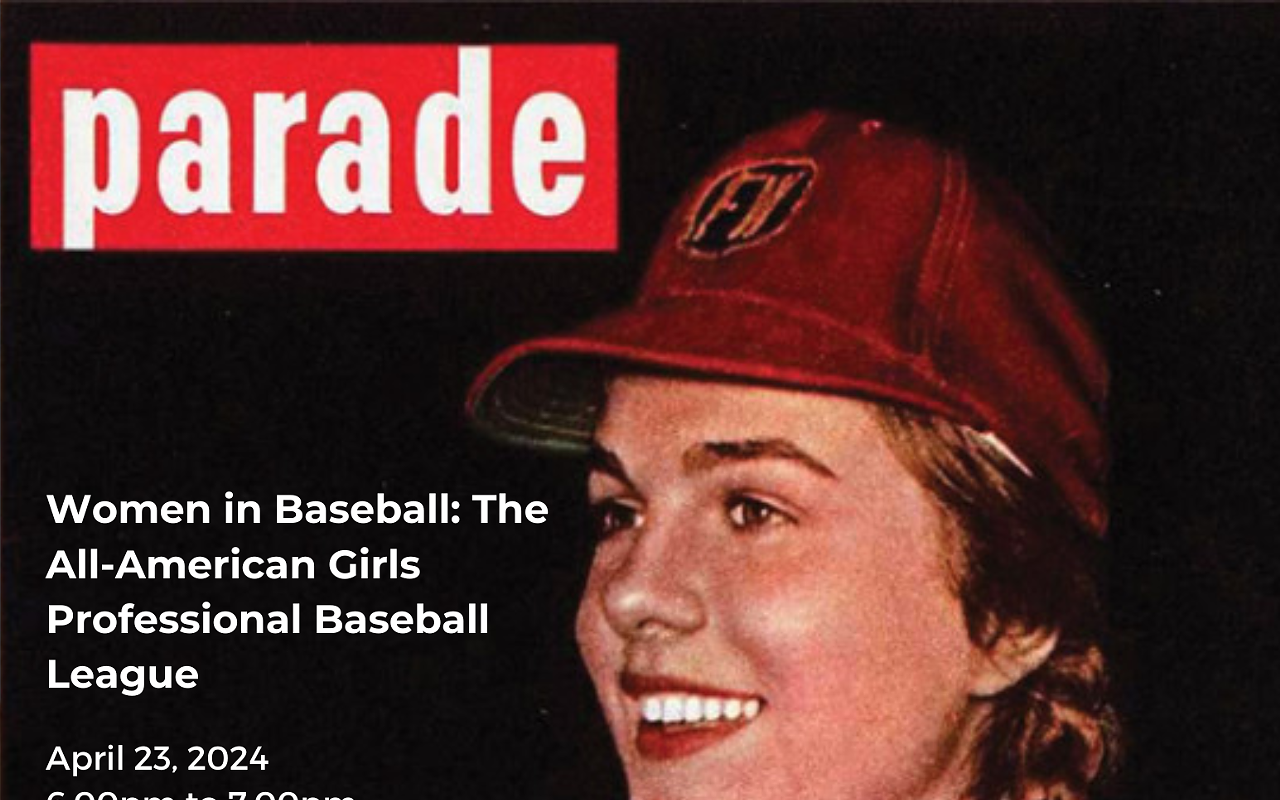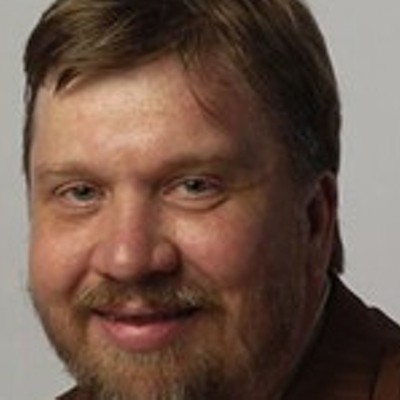
Tammy Herstad feels like a failure. A mother of three adopted sons and one biological daughter in the Chicago suburb of Bartlett, Herstad spends much of her time worrying about her adopted son, Adam. The 9-year-old has been diagnosed with bipolar disorder and other emotional disturbances that manifest in violent, destructive behavior at the slightest provocation.
“Right after the adoption, he fell off the deep end,” Herstad says. “He would wake up in the middle of night and destroy things. He would take (his brother) Abel’s diabetes syringes and stick them in things. He would break glass, he would hurt our dogs, he couldn’t sit in his seat anymore. He was hearing voices…(he was) aggressive, violent. It was just absolutely crazy.”
Herstad says she feels like she failed Adam because her love and parenting skills weren’t enough to stop his damaging and dangerous behavior. But Tammy Herstad also feels let down herself. She says she wasn’t warned about Adam’s bipolar disorder, reactive attachment disorder and other issues. And she’s not the only one who feels left out of the loop.
Illinois Times spoke with five families in Springfield and around the state who say the Illinois Department of Children and Family Services, along with the private agencies with which DCFS contracts, fails to give families the full picture concerning the children they adopt. Undisclosed tendencies toward violence and self-harm can lead adoptive families to throw up their hands in desperation, jeopardizing the future of an adopted child.
Does DCFS keep potentially explosive information from adoptive parents or offer promises it doesn’t keep? The answer is nuanced, but not very comforting.
The scope of the problem
Mental illness among children in foster care is a common problem. A March 2010 report from the Illinois Department of Human Services says nearly 45,000 children and adults up to age 21 in Illinois received mental health services from state-supported agencies in 2009. Of those, more than 18,000 children and young adults were classified as having a severe emotional disorder that impairs their ability to function in social, family and educational situations. About two percent of those with severe emotional disturbances receive long-term residential treatment, and another two percent receive intensive treatment in their homes. DCFS spokesman Kendall Marlowe says there are currently about 15,000 children in the foster care system in Illinois.
The Child Welfare League of America says about 6.1 million children lived with parents who abused alcohol or other drugs as of 2001. The effect on children of alcohol or drug abuse by a parent is staggering: children whose parents abuse drugs and alcohol are almost three times more likely to be abused and four times more likely to be neglected. In about 70 percent of child abuse or neglect cases, a parent’s abuse of alcohol or drugs exacerbates the abuse. More than 80 percent of children in the foster care system have developmental, emotional or behavioral problems, CWLA says.
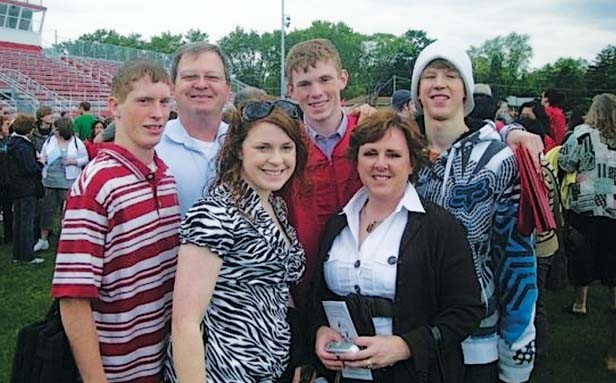
Their stories
Richard H. of Springfield first adopted his daughter Andrea in 2003 at the age of 12. (Their names have been changed at Richard’s request to protect Andrea’s identity.)
Richard says he and his wife received a vague history about Andrea when they took her in, including that her biological parents were drug addicts and alcoholics. She had been through several failed foster care placements before she came to Richard’s family, though the adoptive parents weren’t told why those previous placements had failed.
Richard says he and his wife were told that Andrea had been diagnosed with attention deficit disorder and depression, which he says turned out to be wrong.
Richard says Andrea actually has reactive attachment disorder (RAD), a condition in which children who are denied emotional attention while very young find it difficult or impossible to trust anyone or form emotional bonds later in life. Richard says DCFS told a previous foster parent about the RAD diagnosis, but didn’t tell him and his wife.
“They didn’t tell us, because if they told us, they thought we wouldn’t take her,” Richard says.
When Andrea lived with Richard and his family, he says she ran away so often that he came to be on a first-name basis with the police dispatchers. Andrea skipped school often, vandalized Richard’s car and home, threatened his wife with a knife and tried to kill them. Andrea, now 18, has since moved out to live with a boyfriend, Richard says, adding that he still worries about her.
“I feel worst of all for her in all of this,” he says. “We still would have taken her if we had known about her history, but we would have educated ourselves. I kept sending complaint letters to the head of DCFS about the caseworker, because she (the caseworker) almost got us killed. She knowingly put a time bomb in our home, did not tell us, and then she walked away.”
Bernadine Long of Chicago first took in her adopted son, whom she asked to be identified only as “R.L.,” in 2000 at the age of 3 as a foster child. Even before Long fully adopted R.L. in 2007, he began acting out violently. R.L. has been diagnosed with bipolar disorder with schizophrenic tendencies, attention deficit hyperactivity disorder (ADHD) and a learning disability, Long says.
“He’s very aggressive, very oppositional, very defiant,” Long says, adding that doctors have tried a handful of medications that briefly stabilized R.L.’s behavior. She says none of the medications worked for very long, nor did the variety of treatments and therapies recommended by DCFS.
Long says DCFS kept information about R.L.’s background from her prior to adoption, and she was given no indication when she first took him in as a foster child that he would exhibit violent behavior. His biological mother may have used drugs and alcohol during pregnancy, Long says, but Long didn’t find that out until her attorney was able to track down the information in 2011, after a clinical meeting that was held without her knowledge.
When R.L.’s caseworker first approached Long about adopting R.L., Long requested specialized help for him.
“I said we need more help for him before adoption, because I’m having trouble now getting sufficient services that would help him be able to remain in our home with us,” Long says. “They eventually started threatening me, saying, ‘If you don’t do this, we’re going to remove him from your home.’ I told them they might have to remove him because I’m not just going to sign some papers when I know he needs help.”
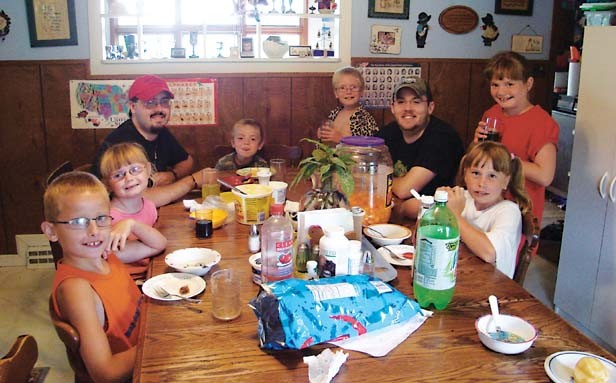
Long eventually obtained a signed agreement for specialized services for R.L. during a time of crisis. Those services never materialized, Long says.
“We still had the same problems in terms of getting help for him,” Long says. “I would call the caseworker and they would say I need to call an emergency crisis number, and they’d make an appointment to come out and see him. I’m like, ‘He’s having a crisis right now. What do we do now?’ I couldn’t get any help, so I ended up having to call the police.”
Long says she feels like she let her son down.
“I’m bitter and angry at the way DCFS treated me and my son, making all these promises and not carrying forth any of them,” Long says. She notes that R.L. tried three times to get her in trouble with DCFS by falsely reporting abuse. All three investigations came back unfounded, Long says.
“My son tried to burn our house down, he hit, pushed and kicked my 80-year-old mother, and he has hit me and his brother, but you can’t really reach out to DCFS because they look at you like you’re the criminal. All I’m trying to do is get hope for my child so we can remain a family, remain together.”
Toni and James Hoy of Ingleside, Ill., first took in their adopted son Daniel in 1996 at age two. His biological mother may have used drugs or alcohol during pregnancy, Toni Hoy said, and he had been neglected by his biological parents. Daniel’s behavior became violent and aggressive, and at age 13 he pulled a knife on Toni Hoy, threw another child down a set of stairs and displayed other violent and aggressive behavior that made Hoy feel unsafe in her own home.
Hoy says she and her husband were not warned that Daniel might develop violent behavioral tendencies.
“They told us he had been neglected, but they thought he was young enough that if he was in a good home, he would be just fine,” Hoy says. “Looking back and educating myself, when he was found, he was near death. He was a baby and his bodily organs were shutting down. For people who are educated about severe trauma like that, they would know that he was going to have PTSD (post-traumatic stress disorder).”
Hoy says she was surprised to learn that PTSD could develop in a baby that young, but she feels DCFS should have known.
“How could you find an infant in that condition and not know, if you were educated in clinical things?” Hoy says. “Part of it was clinical people knowing what these problems could look like down the road and not telling us, telling us instead that he’d be fine down the road once he was in a stable environment.”
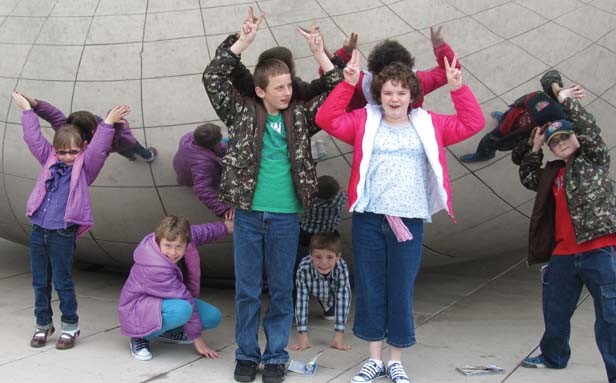
When Daniel’s behavior became too dangerous for the Hoys to handle around age 13, they refused to pick him up from a mental hospital, hoping they could access Medicaid funds for Daniel’s long-term treatment. They instead faced a charge of neglect for not letting Daniel back into their home. The charge was eventually dropped, but Daniel became a ward of the state and was placed in a residential treatment facility.
“They weren’t telling us the truth about being able to access treatment,” Hoy says of DCFS. “They said it would be painful to disrupt an adoption, but they told us they would provide treatment if necessary (under the adoption agreement). They let us believe our personal insurance or Medicaid would cover it.”
The Hoys sued to regain custody and secure funding for Daniel’s treatment. The state eventually agreed in a settlement to pay for Daniel’s treatment, and the Hoys regained custody, but he remains in residential care. [See “When adoption goes wrong,” Aug. 11, 2011.]
“I love the boys enough to see them through whatever issues they have,” Hoy says, referring to Daniel and her other adopted sons. “If I had known ahead of time that we were going to deal with the mental health issues we’re dealing with, I still would have taken them anyway, if we could get the support we needed. If I had known we would face that and not have the support, and face being labeled child abusers, absolutely not. It’s been three and a half years of trauma for us.”
Wally and Dawn Busch of Petersburg differ somewhat from other families interviewed by Illinois Times. The Busches say they were aware that their adopted son Alan, who they adopted at age two in 2000, had been abused by his biological mother, who they say abused alcohol and had mental health issues of her own. They weren’t surprised when Alan began to act out around the time he hit puberty. The Busches weren’t even surprised when they had to take Alan to a mental hospital because of his threats to kill other children at school, threats to hurt himself and the couple’s other children, and his self-mutilation.
What surprised the Busches is the response from Alan’s caseworker when it came time to pay for his mental health treatment. The Busches were told they had to apply for a certain state grant and be denied twice before DCFS would even consider accessing Medicaid to pay for expensive long-term treatment at a residential care facility. Wally Busch says applying for the grant and being denied twice was only meant to keep his family busy instead of asking about residential care.
Wally Busch says a caseworker also previously convinced them to put Alan in a foster care group home instead, where he would receive specialized services. Busch says Alan’s psychiatrist later found out no services were provided there. And despite Alan’s documented history of inappropriate contact with other children, the group home housed a three-year-old girl in foster care, he says.
“They did everything including lying to us,” Wally Busch says. “The adoption subsidy agreement we signed is full of broken promises. They told us they’d provide all these services, but the follow-through is where they really let Alan down.”
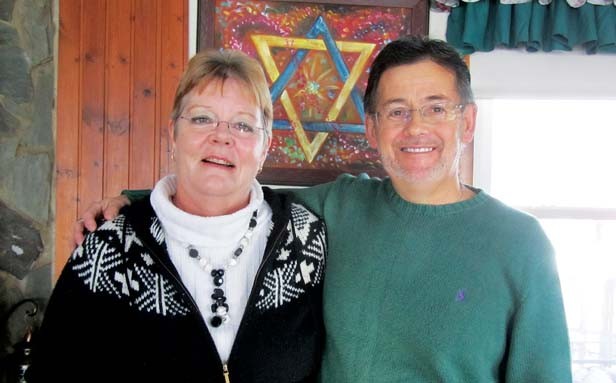
A complex, ever-changing system
Though their stories each differ slightly, these families’ experiences with DCFS raise questions about how the agency operates and about the effectiveness of communication between caseworkers and parents. DCFS spokesman Kendall Marlowe says caseworkers do their best to navigate an ever-changing system, but obstacles and unknown variables can make the job very complex.
“By definition, when we first encounter a child, we have no history whatsoever of their condition,” Marlowe says, explaining that the agency takes custody of children in a variety of parental situations. Some parents are uncooperative, while others aren’t even around to tell caseworkers about the child. “We understand that parents who are taking a child into their lives permanently need to know everything they can about a child, and we acknowledge our responsibility to work with them.”
Marlowe says even if caseworkers know that a child came from a home with abuse or neglect, what they can tell potential foster or adoptive parents is limited by privacy laws.
“We have to keep in mind that both the child and biological parents have a legal right to privacy,” he says. “We can only begin to give out this kind of information when a foster parent expresses interest in a child and begins to become involved in the child’s life.”
The changing nature of mental health conditions creates another obstacle for caseworkers, Marlowe says, because it makes prediction of dangerous behavior very difficult.
“Mental health conditions are not like a broken bone or an infection,” Marlowe says. “They are ever-changing and difficult to define, let alone treat. Even if a full and accurate assessment of a child is done at one point, a year later, that assessment may be utterly wrongheaded – not because of a problem with the first assessment, but because the child has changed. That’s particularly true in adolescence, where so many forces are changing a child’s body, brain and behavior.”
More broadly, he says, casework itself is a “tremendous challenge” because each situation is unique.
“We have specialists and supervisors to support our workers, but human beings are complex and ever-changing,” he says.
Marlowe addresses the perception by some families that DCFS caseworkers hold back information that might scare off potential parents by saying that’s simply not the case. DCFS went from having more than 52,000 children in its care in 1997 to just more than 15,000 now, he says, but the rate of disrupted adoptions has not increased as the agency has shifted toward more permanent placements.
Marlowe’s own parents adopted six foster children with varying degrees of emotional disturbances when he was growing up. He says that experience prepared him to be a foster parent himself, but every parent must ask themselves what they’re willing to deal with when adopting.
“When my wife and I came to it, I was able to honestly say I’ll take on the most severe psychological issues you’ve got,” he says. “However, medically complex cases blow my mind. I couldn’t be that kind of parent for five minutes. I think every parent has a unique ability to help certain kinds of children.”
Contact Patrick Yeagle at [email protected].

